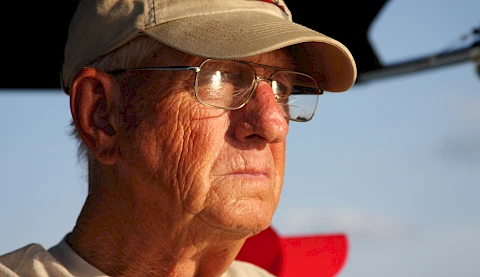
May is recognized as Mental Health Awareness Month, a time dedicated to raising awareness and promoting understanding of mental health issues. This year, we're casting a spotlight on a group that faces unique challenges—our retired older servicemen and women. Learn to better understand, recognize, and respond to signs of depression in senior veterans.
Depression in Senior Veterans
Major depressive disorder (MDD) is more than occasional sadness. It's a persistent feeling of despair, lethargy, and disinterest that infringes on a person's ability to live a fulfilling life. For our older veterans, the risk of experiencing the disease is heightened. Military service often leaves emotional and psychological scars that can linger on. As they age, life changes such as retirement, loss of peers, or a declining condition can exacerbate these issues, leading to hopelessness.
The nexus of military service and aging can create a unique environment conducive to mental decline. Veterans often have a strong sense of duty and self-reliance, and they may find it challenging to ask for help when they're suffering. This pride and reluctance to seek aid can lead to feelings of isolation, often exacerbating the depressive symptoms.
Recognizing MDD in Elderly Former GIs
Identifying indicators of depression in senior veterans can prompt early intervention, which is vital for effective treatment. While manifestations can vary from person to person, certain manifestations are prevalent among retired older servicemen and women. Here are some to note:
Sense of Guilt
One widespread sign is an intense sense of guilt. Often, veterans carry the burdens of wartime experiences which can manifest as remorse or shame. This emotion is not necessarily connected to real wrongdoings but can be the result of surviving when others did not. This survivor's guilt can shift into MDD if not addressed.
Isolation
Isolation is another common sign and veterans in their golden age may disconnect from friends, loved ones, or social activities to deal with depressive episodes. Isolation can stem from an attempt to cope with emotional pain or from the perception that others don't understand their experiences.
Recognizing these signs is the first step toward helping an elderly veteran deal with hopelessness. Remember, they may not realize they're depressed, so vigilance can make a significant difference.
Resources and Support for Senior Veterans
Fortunately, there are various resources available to aid older vets with depressive disorders. Organizations such as the Veterans Health Administration provide mental health services specifically tailored to veterans. Locally, there are community outreach programs that can offer assistance.
Work With Senior Helpers Corvallis
Recognizing depression in senior veterans is crucial. It’s a mark of our respect and gratitude for their service, as well as a way to ensure they get the help they need. If you're in the Albany, Corvallis, Salem, Lebanon, or Molalla areas, and you know someone who is coping with MDD, contact us at Senior Helpers Corvallis. Let's ensure our elderly vets don't face overwhelming emotions alone by offering support, resources, and aiding them in their journey toward mental wellness.